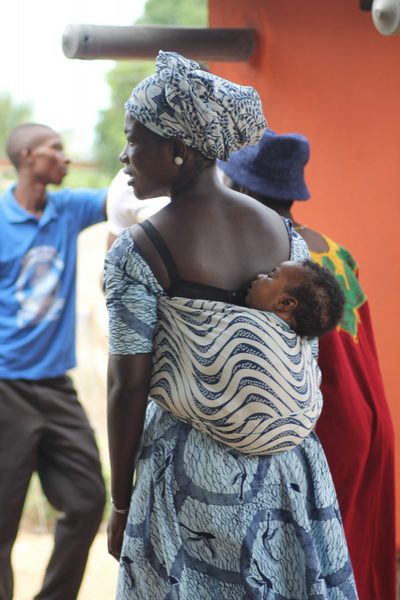Of the countless dreams, education goals and career aspirations we've heard from working with thousands of GLA students over the years, one theme seems to pop up more often than others: “I want to be a doctor.”
We're humbled that so many young adults are motivated to take on the responsibility of providing care and the challenge of ending human suffering. We also urge these students to reflect on the big picture of medicine and healthcare: As the doctors who help develop GLA’s Medicine & Public Health programs constantly remind us, “Successful physicians and healthcare professionals know more than their science.” The health of every patient starts far outside their doctor’s office, clinic or operating room. Knowing how to treat or prevent any condition requires empathy, compassion and knowledge of the social and environmental factors that affect patients’ everyday reality.
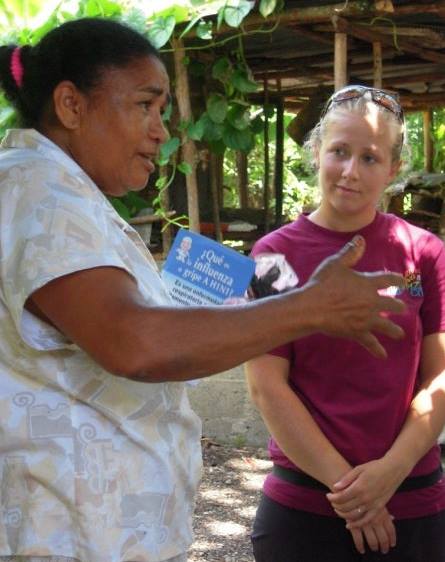
Throwback! GLA ran its first Medicine & Public Health program in Summer 2009, in the Dominican Republic.
For this reason we encourage aspiring medical students to do more than just volunteer at the local hospital in their hometown this summer, or study for entrance exams. Going beyond your comfort zone and joining a Medicine & Public Health program abroad exposes students to diverse medical fields, expands their worldview and reveals the power of healthcare in resolving injustices around the world. Students gain valuable real-world experience and learn from professionals of many walks of life.
Here are 6 highlights aspiring medical students can expect when joining one of GLA's most impactful global health programs, Ghana: Foundations of Global Health™.
Ghana: Foundations of Global Health™
1) Witness how healthcare is actually implemented on the ground.
Students on this program visit a local clinic and learn from the community nurse who oversees healthcare in the region. They also visit a pop-up maternal health clinic, which meets under a tree weekly and sees new mothers and their babies for checkups. The program takes a hands-on approach to learning, with students having the opportunity to shadow other nurses, discuss definitions of global health and attend workshops and presentations. Evening discussions about health are holistic: It takes more than a health care system to make a country healthy!
GLA students on the Ghana: Foundations of Global Health™ program visit an open-air maternal health clinic, which is set up weekly by community health nurses to attend to new mothers' and babies' needs.
2) Meet health professionals from diverse countries and fields.
Students will have the opportunity to meet with a combination of medical staff, public health professionals, community health nurses, NGO leaders, health activists and more. Shadowing and working with all these individuals provides insight into different health field careers, and illustrates the wide network of people and organizations it takes to run a health care system, even in a developing country. Students will witness firsthand the health and economic needs of rural communities in Ghana, and can seek inspiration from passionate leaders who have initiated projects to improve access to services.
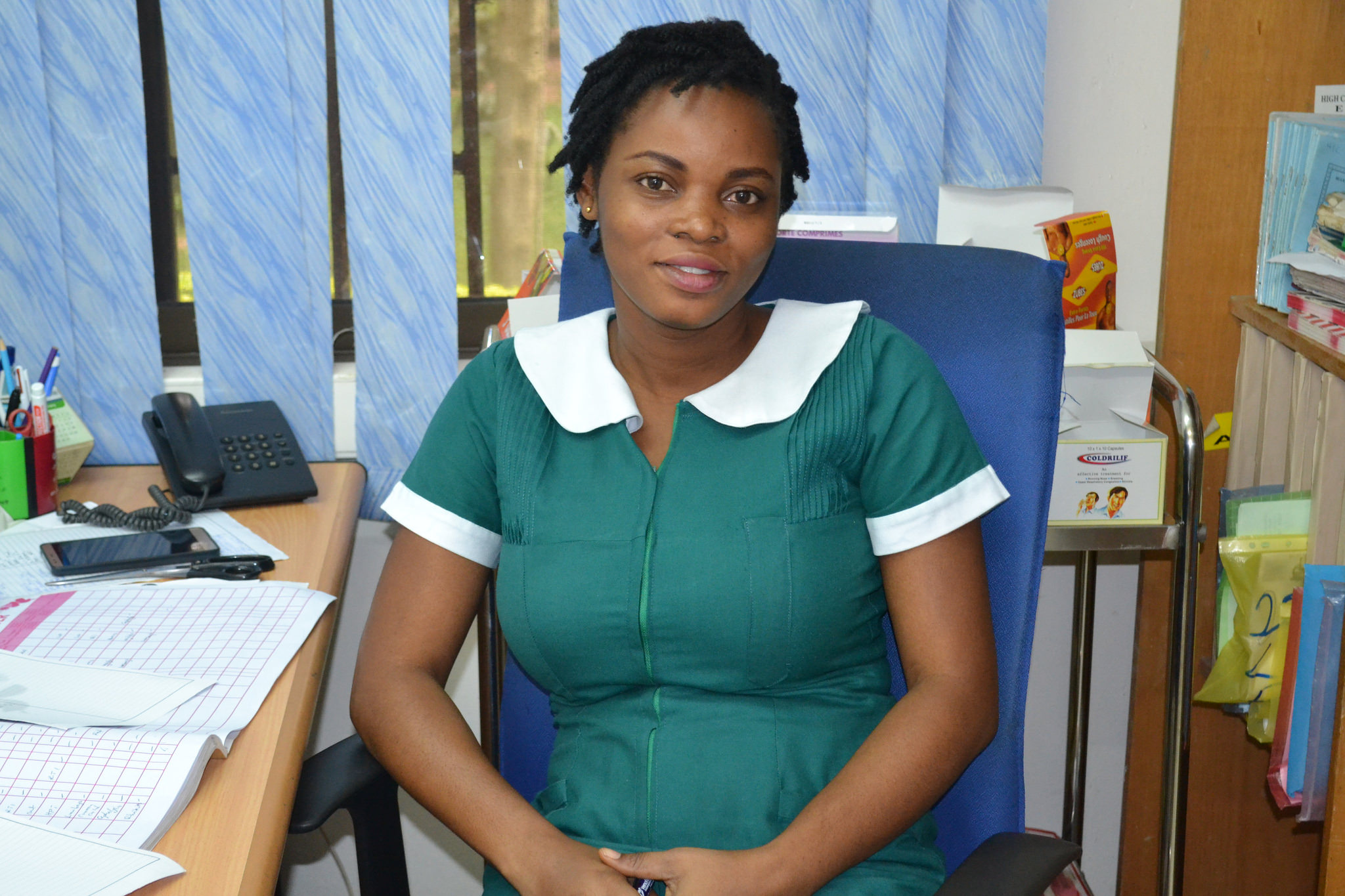
GLA students on the Ghana: Foundations of Global Health™ program shadow nurses and public health professionals in Dzita, Ghana.
3) Develop skills of compassion & empathy, critical to success as a healthcare professional.
Empathy and compassion in healthcare play vital roles in the patient experience. Research shows they are highly effective communication tools that can help build patient trust, calm anxiety and improve health outcomes. On the global health program, GLA students experience this firsthand and take their understanding of empathy in healthcare a step further: By working across cultures, students gain the valuable experience of researching and empathizing with a new culture to identify stigma that may act as a barrier to effective healthcare delivery. Learning to develop culturally-sound approaches to health intervention is an enormous takeaway unique to a service-learning experience abroad.
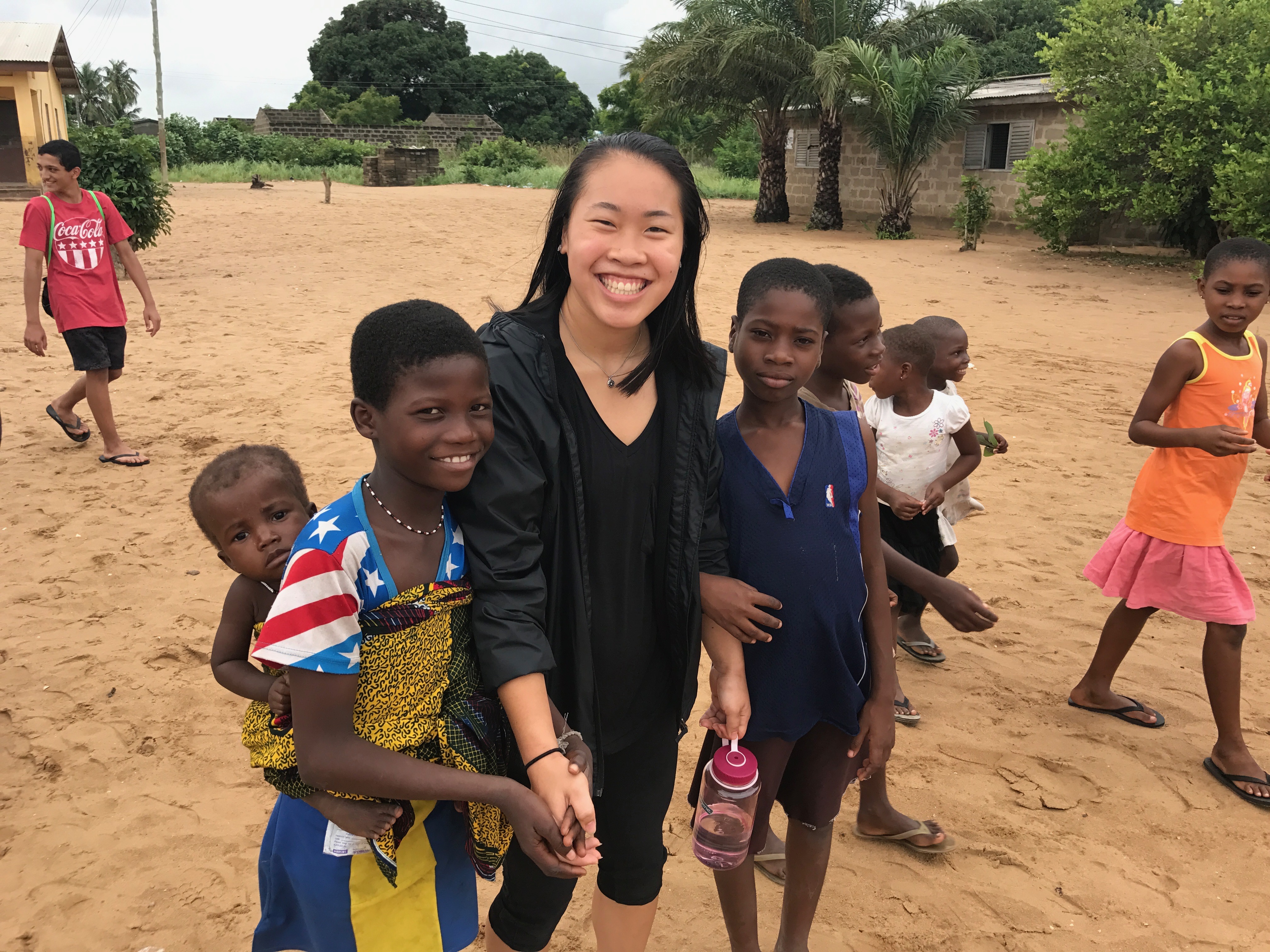
GLA students on the Ghana: Foundations of Global Health™ program live and work in a community in Dzita for two weeks, learning about daily life and developing bonds with neighborhood residents.
4) Understand the power of health to resolve social injustices & economic disparities.
According to the World Health Organization, only 10% of the world expenditure on health research and development is spent on health conditions that represent 90% of the global disease burden. Developing countries face easily preventable tragedies, like children dying of sanitation-related diseases and girls dropping out of school upon reaching puberty. Prevention would be achievable with the simple addition of basic, private toilets and implementing a hygiene education. Such small changes, advocated for by informed health professionals, could dramatically help communities face a healthier future!
On this program, students learn how they can combine a global worldview with a health career. Through clinics and evening sessions, they gain awareness of the multi-faceted nature of health and its social, economic and political determinants and implications.
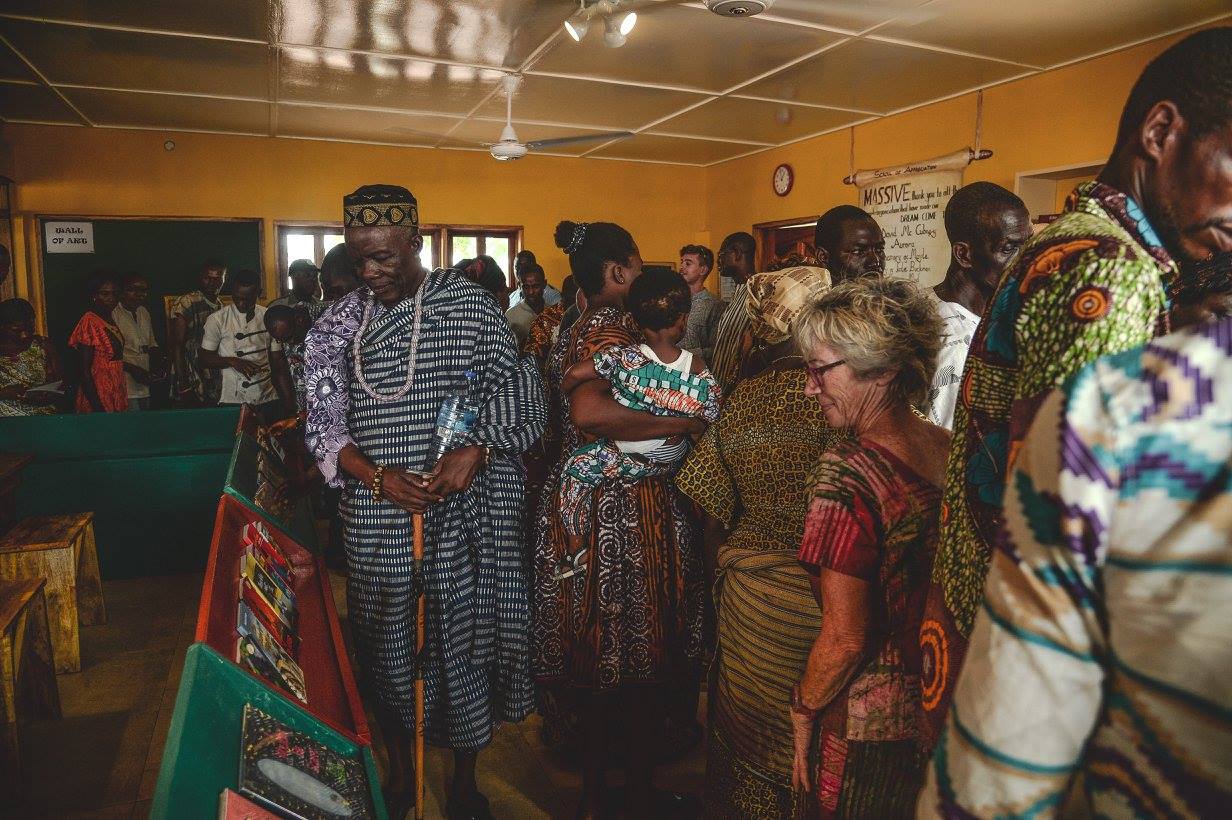
GLA students on the Ghana: Foundations of Global Health™ program will visit the nearby Learning Center, a new community gathering place where education on topics including health and hygiene is a top priority.
5) Work on an impactful WASH (Water, Sanitation and Hygiene) project that literally saves lives in rural Ghana.
Besides learning about healthcare implementation, students will work on a prevention-focused project as well. This community service project, led by a Ghana-based NGO, makes a direct health impact on a village in Dzita. Students help build an EcoSan toilet facility from start to finish, which serves hundreds of residents, reduces open-air defecation and is designed to last for thirty years. These high-quality units serve the triple benefit of providing safe and private sanitation facilities, reducing air and water contamination and producing a safe, organic compost that can be used to improve food security. Ultimately, the toilets are an effective way of preventing the spread of diseases like cholera and typhoid.
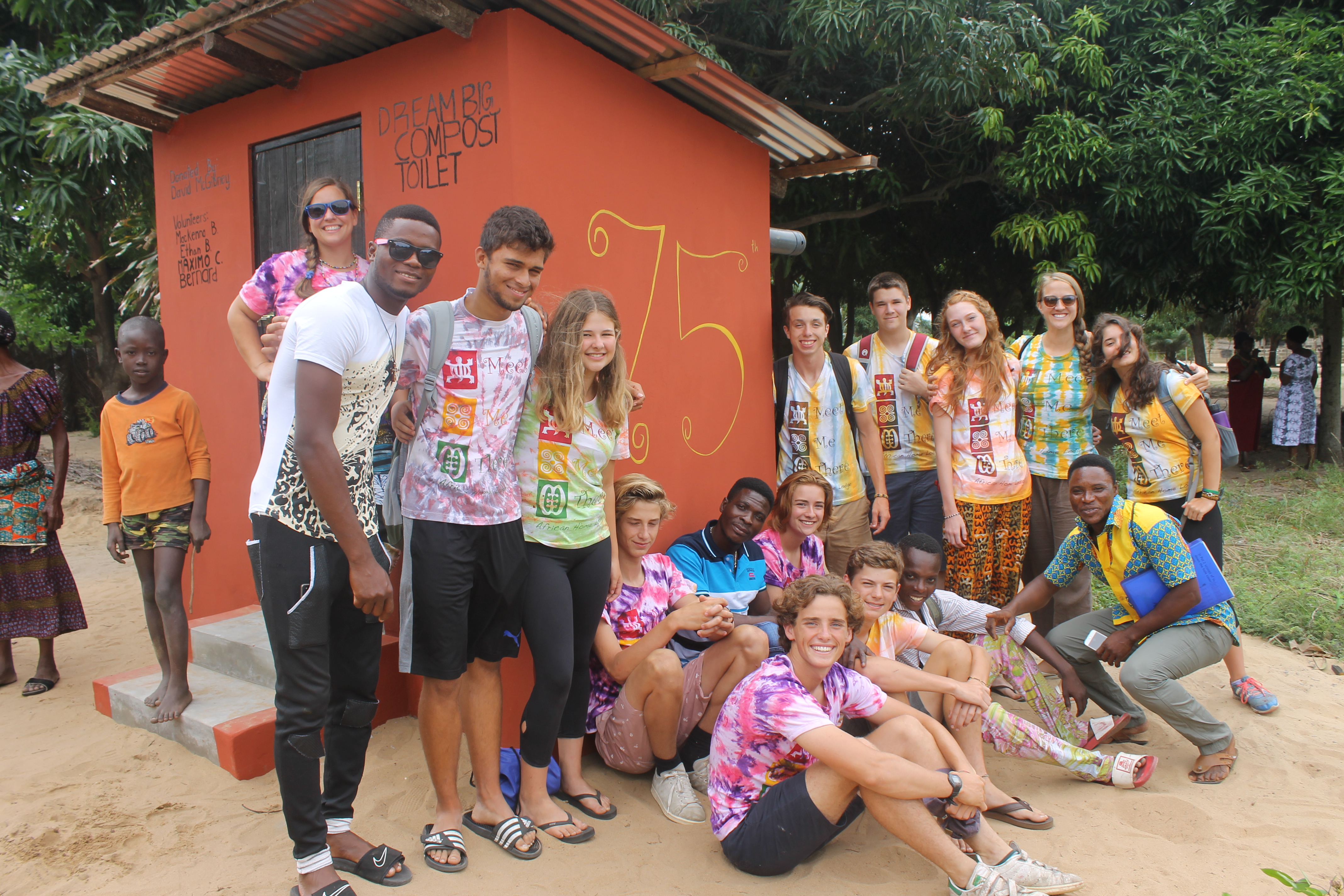
Last summer, GLA students on the Ghana: Foundations of Global Health™ program completed the 75th "EcoSan" toilet in the Dzita region.
6) Make professional connections with staff and organizations who can help with your career in the future.
Countless GLA alumni have made connections with the staff on their programs—from educators to founders of NGOs to returned Peace Corps volunteers to physicians and activists. Often these are the first international relationships that students make, opening up a literal world of possibilities for after graduation. GLA has had students who have interned or found short-term jobs with organizations that inspired them on their GLA trips, attended universities abroad, or simply quoted a role model they met through GLA in their college application essays.
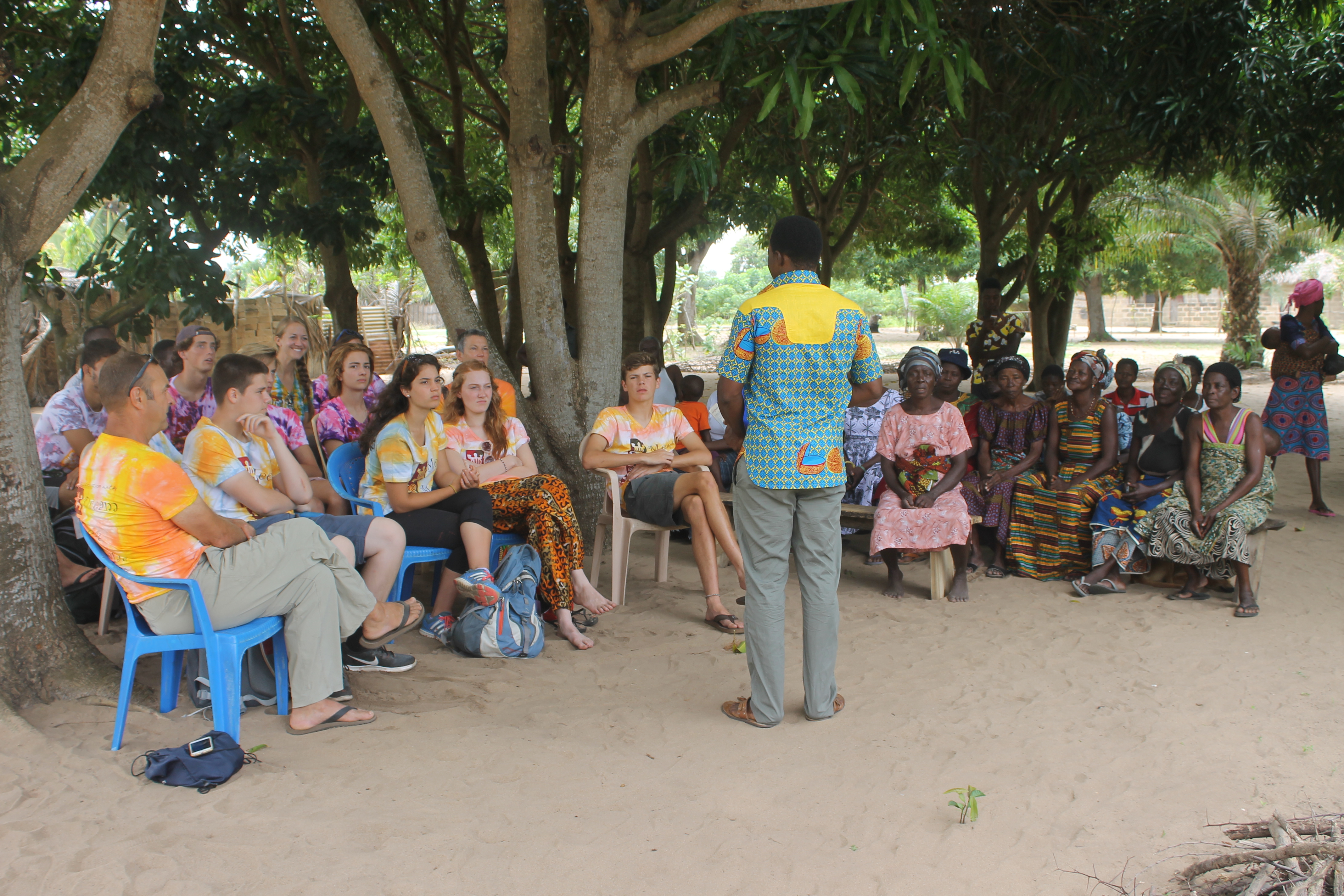
GLA students on the Ghana: Foundations of Global Health™ program who stay in touch with their staff often go on to reconnect for future referrals or opportunities after graduation.
What about sustainability? Who really benefits from these short-term global health programs?
GLA is well aware of the pitfalls that many short-term medical brigades face, and the risk of doing more harm than good when an under-resourced community becomes reliant upon foreign aid. We recognize that sustainable change can only be achieved when the residents of the region are deeply involved, and projects community-owned and led. Thus, GLA strives to begin each of our programs not by imposing our own plans and preconceptions, but by building a relationship with local partners who become essential parts of our team. Through these partnerships, we ensure that our service efforts are in solidarity with the community vision, and that we are supporting an ongoing cause.
On all our Medicine & Public Health programs, GLA's learning themes focus less on treating patients and more on educating our students holistically about global health. Programs are progressive experiences designed around a combination of community service, learning about sustainability and cultural immersion within the host community.
To find out more about GLA's philosophies on sustainable development, effective community service and responsible travel, give our Enrollment Specialists a call at +1-858-771-0645.
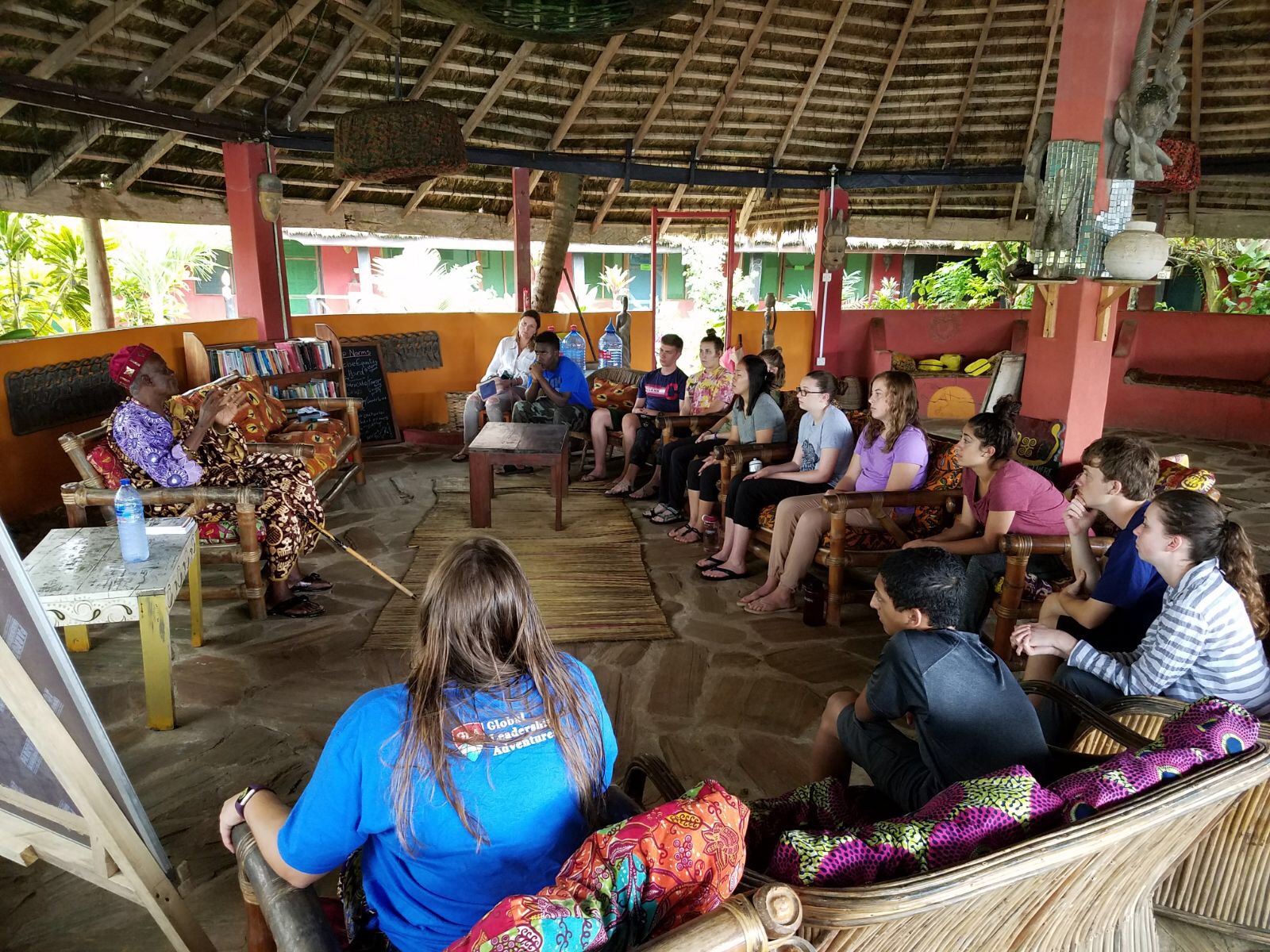
GLA students on the Ghana: Foundations of Global Health™ program spend two weeks surrounded by Ghana’s high-energy and colorful culture.
Written by Margaret Chiu
 Margaret Chiu, Content Writer & Social Media Specialist | An avid reader and writer since childhood, Margaret has always sought to enter distant worlds and make adventurous tales a reality. She has traveled through Europe, Asia and all over the United States to pursue her passion for outdoor adventure, cultural immersion and above all, translating experiences into words and media.
Margaret Chiu, Content Writer & Social Media Specialist | An avid reader and writer since childhood, Margaret has always sought to enter distant worlds and make adventurous tales a reality. She has traveled through Europe, Asia and all over the United States to pursue her passion for outdoor adventure, cultural immersion and above all, translating experiences into words and media.


